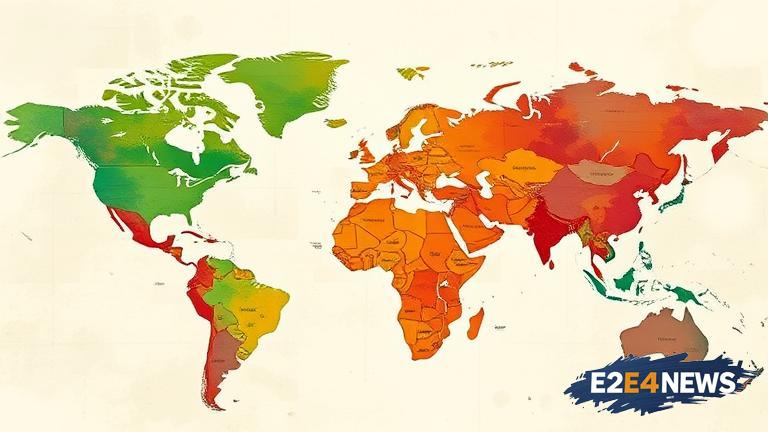The global economy is facing a major overhaul, with international trade policies and agreements playing a crucial role in shaping the future of global commerce. The recent trends in international trade have been marked by a shift towards protectionism, with countries imposing tariffs and other trade barriers to protect their domestic industries. This has led to a significant increase in trade tensions between major economies, including the United States, China, and the European Union. The ongoing trade war between the US and China has been particularly notable, with both countries imposing tariffs on each other’s goods and services. The impact of these trade policies has been felt across the globe, with many countries experiencing a slowdown in economic growth. The World Trade Organization (WTO) has been working to promote free trade and reduce trade barriers, but its efforts have been hindered by the rise of protectionism. Despite these challenges, many countries are still committed to promoting free trade and investing in international trade agreements. The European Union, for example, has been actively pursuing new trade agreements with countries around the world, including the recently signed EU-Japan trade deal. Similarly, the United States has been negotiating new trade agreements, including the US-Mexico-Canada Agreement (USMCA). The impact of international trade policies on the global economy cannot be overstated, with trade playing a critical role in driving economic growth and development. According to the WTO, international trade has lifted millions of people out of poverty and has helped to create new opportunities for businesses and individuals around the world. However, the current trade tensions and protectionist policies have raised concerns about the future of global trade and the potential impact on the global economy. Many experts believe that a prolonged trade war could lead to a significant slowdown in economic growth, with some even predicting a global recession. The impact of trade policies on individual countries has also been significant, with some countries experiencing a surge in exports and others facing a decline in trade. The use of tariffs and other trade barriers has also raised concerns about the potential impact on consumers, who may face higher prices and reduced access to certain goods and services. Despite these challenges, many countries are still committed to promoting free trade and reducing trade barriers. The WTO has been working to promote transparency and cooperation in international trade, and many countries are investing in new trade agreements and initiatives. The future of global trade is uncertain, but one thing is clear: international trade policies will play a critical role in shaping the global economy in the years to come. As the global economy continues to evolve, it is essential that countries work together to promote free trade and reduce trade barriers. This can be achieved through a combination of bilateral and multilateral trade agreements, as well as a commitment to transparency and cooperation. By working together, countries can promote economic growth and development, and create new opportunities for businesses and individuals around the world. The global economy is at a crossroads, and the choices that countries make about international trade policies will have a significant impact on the future of global commerce. It is essential that countries prioritize free trade and cooperation, and work together to reduce trade barriers and promote economic growth. The benefits of free trade are clear, and it is essential that countries work together to promote a more open and cooperative global trading system. By doing so, countries can create new opportunities for businesses and individuals, and promote economic growth and development around the world.
